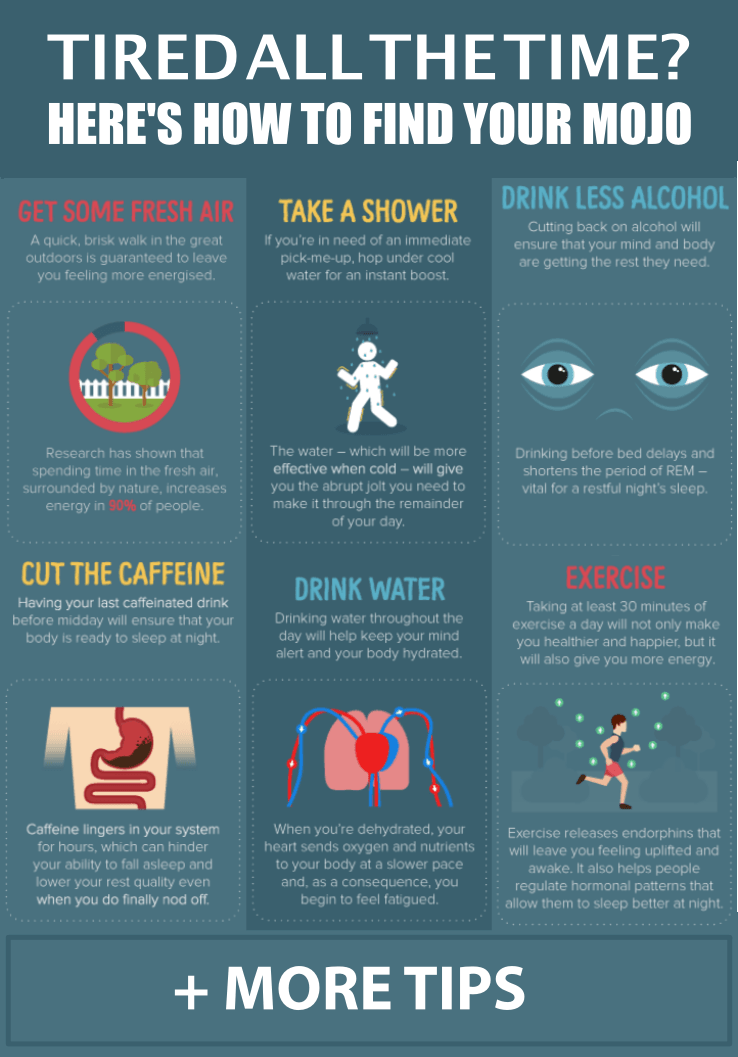Being a reader nowadays, despite the fact that reading has a plethora of benefits for us, has become increasingly more challenging from one year to another. Our lives are more hectic than ever before, our jobs are more time consuming and distractions are all around us.
One of the most annoying things to realize after making all the efforts to set time aside to read and to make reading a daily habit, is that reading can be in itself a rather tiring activity.
It’s not the same for everyone, but if you ever found yourself wondering “why do I get tired when I read?”, we have a couple of answers for you.
Table Of Contents
In itself, reading is not a particularly tiring activity. On the contrary, there are studies showing that reading has a lot of benefits for our daily lives, including stress reduction, consolidating general knowledge and even providing a boost for our creativity and compassion.
Reading, in adults, is something that comes naturally and requires very little effort when done recreationally. Of course, the reading material plays a big role in this statement. Reading a fun contemporary novel is clearly a lot less challenging than reading old classics from authors recognized as being more difficult to consume.
But even so, reading is relatively easy and has more benefits than drawbacks. Of course, studying to improve or learn a new skill forcing ourselves to understand and remember everything we read may be somewhat tiring, especially when done over extended periods of time.
Another important thing to keep in mind is that we need to make a clear differentiation between being tired and sleepy. These are two different things that can both be an effect of reading but have completely different causes. Reading can make you sleepy for several reasons, ranging from the fact that it relaxes you and lowers your blood pressure and heart rate to the position you do your reading in.
Getting actually tired and not sleepy while reading may point to other possible causes that are more related to you as a person than to the actual activity of reading. Getting tired when reading, otherwise known as reading fatigue, is mostly common among young readers and happens less and less as adulthood sets in.
Track the books you read, monitor the time you spend reading and keep notes on your reading habits and how it makes you feel. You can set yourself targets for the time you spend reading and you can get notified whenever you’re behind on your reading time.
If you are an adult who constantly gets tired while reading, there may be a couple of things you should pay extra attention to from now on in order to identify the cause of your reading fatigue and learn how to overcome or prevent it in the future.
Obviously, if you are simply tired of reading books, there’s a chance the causes below won’t apply to you and the feeling of fatigue you feel could be more indicative of the fact that you are simply in a reading slump. Getting out of one will require a completely different approach and a different set of strategies, but the good news is that it can be done right with the right tools and a healthy mindset, especially if you explore our step by step guide on getting out of reading slumps.
Getting out of one will require a completely different approach and a different set of strategies, but the good news is that it can be done right with the right tools and a healthy mindset, especially if you explore our step by step guide on getting out of reading slumps.
If a reading slump is definitely not the problem you are facing, here are some of the most common causes for getting tired when reading.
Like with many other things, sometimes the right answer is the most obvious one. Since your eyes are an essential part in the reading process, having bad vision can have a serious impact on how much and how quickly you are able to read. Even though you may not realize it, it could be that your eyes get tired when reading.
There is a relatively wide range of eye problems that can affect your ability to read over extended periods of time. The good news is that most of them are easily solvable by simply wearing glasses. Especially if they are caught early, in childhood, they can even be completely fixed.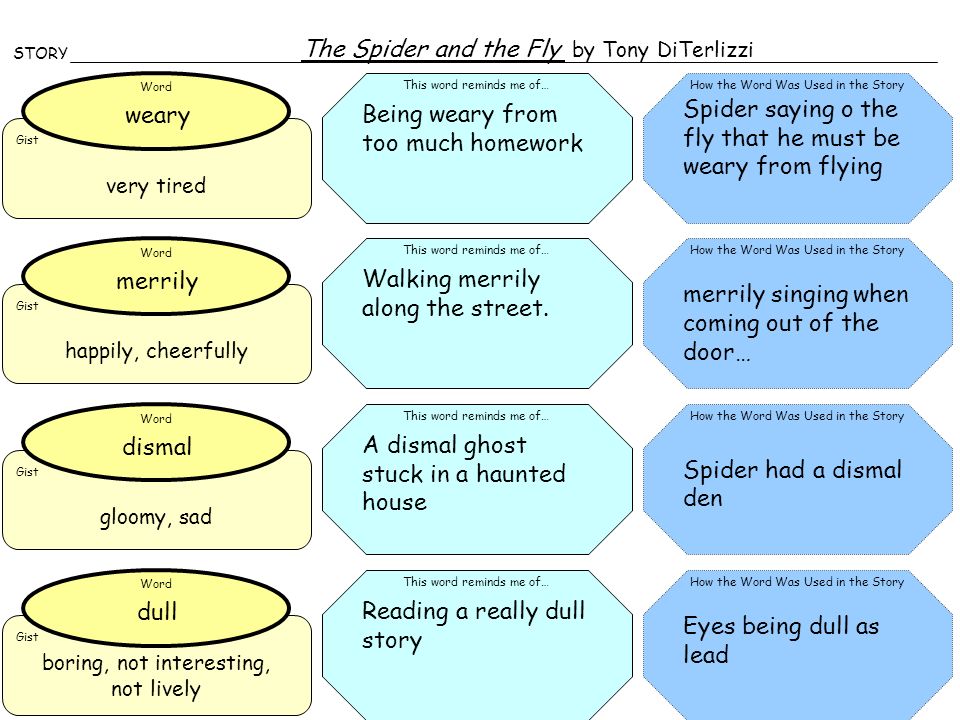
It’s not at all uncommon to mistake the source of our fatigue. Having a generally stressful life, working long hours or having an imbalance in our lives can negatively affect our ability to focus on our reading.
Sometimes, the real reason we get tired when reading has a lot less to do with the actual reading than with the stressors in our lives. Trying to focus on the reading material while our mind constantly wanders off to other things is going to make us feel like the reading we do takes a toll on us that is actually caused by other factors.
Reading is a relaxing activity in general, but if we find that the things that keep us on our toes and stress us constantly are too much to handle, we should try fixing them in other ways before we blame reading for not being good enough as a stress relief tool.
Another solution for these cases is to overload ourselves with relaxation techniques by pairing reading or listening to audiobooks with other relaxing activities.
For example:
By allowing relaxation techniques to overlap, we are likely to realize that reading suddenly becomes less tiring than before, which is a clear indicator that reading was not actually at fault for your fatigue in the first place.
It is possible from time to time to pick up a book that puts you completely outside of your comfort zone. Whether it’s because the book is simply too difficult for you or because you dislike it so much that your brain is trying to convince you that the effort of reading it is too much to handle.
There’s no shame in admitting that a book is too difficult. We all have different reading levels, different tastes in books and there is nothing wrong with that. If you suspect that the book you are currently reading takes too big a toll on your energy, try reading something else for a while and see if you still get tired while reading.
If you suspect that the book you are currently reading takes too big a toll on your energy, try reading something else for a while and see if you still get tired while reading.
As I was saying earlier, it is quite easy to confuse the feeling of being tired because of the reading we do with simply being sleepy. One of the most common reasons why we become sleepy as we read is the fact that we make poor choices when it comes to the position we read in.
We are all inclined to choose comfortable positions to read in, but reading while lying down is a sure way to manage to relax too much and become sleepy. Always keep that in mind before you blame reading for making you feel tired.
Overcoming reading fatigue can be a great challenge, but the good news is that it can be done if you find the cause and use the right strategy and if you are motivated enough.
Here’s a couple of the most effective ways to prevent getting too tired while reading.
By reading at the beginning of the day, you ensure that your brain is in tip top shape when you engage in this activity. There are many advantages to reading early in the morning as opposed to reading at night and one of them is that you simply have more energy, you will find it easier to concentrate and you even have a chance to retain more information from what you read.
Of course building this habit can be tough, but is well worth it once it becomes part of your daily routine.
Speaking of getting used to reading in the morning, besides a solid motivation, you will also need some help from a reading tracking app like Basmo. Building healthy habits is not always easy and doing things early in the morning is a challenge for most of us.
By using Basmo, you get access, among other things, to a scheduling feature which allows you to select the days of the week you want to read in and the time of day you want your reading sessions to take place. This is especially helpful if you want to start organizing your reading habits and to have a clear structure for your reading sessions.
This is especially helpful if you want to start organizing your reading habits and to have a clear structure for your reading sessions.
Basmo not only allows you to select the exact times for each session, but will also remind you of all upcoming reading sessions through notifications so that you never miss one.
And since we are on the subject of reading habits that can prevent us from getting too tired while reading, Basmo has some other features that can come to your rescue.
Setting some goals for your reading and using them as motivation to power through tiring reading sessions is a great way of overcoming fatigue. We all know that our state of mind plays a huge role in how we approach the challenges we face.
Basmo allows you to set daily and yearly reading goals and provides you with ways of visualizing your progress towards meeting them, through comprehensive statistics and progress bars.
You can adjust these goals as you go adapting to how your “reading stamina” evolves: increasing your daily goals in small increments one week after another for example could turn out to be a great way of ensuring that you train yourself to overcome reading fatigue.
It’s 100% free to download, so what have you got to lose?
Reading should always be done in a comfortable position, but never allow yourself to get too comfortable, to the extent that you become sleepy. Reading while lying down, especially if you do it in the evening after a long day, is very likely to result in you falling asleep with the book on your chest.
To prevent that, try to find a way to read in a comfortable position you know you are unlikely to fall asleep in. Sitting up on a couch for example, or on an armchair.
As I was saying a bit earlier, an impaired vision can compromise your ability to read without getting tired. If you suspect you may suffer from any condition that compromises your vision, make sure to get checked out by an eye specialist.
Eye conditions are most likely to result in a necessity to wear glasses.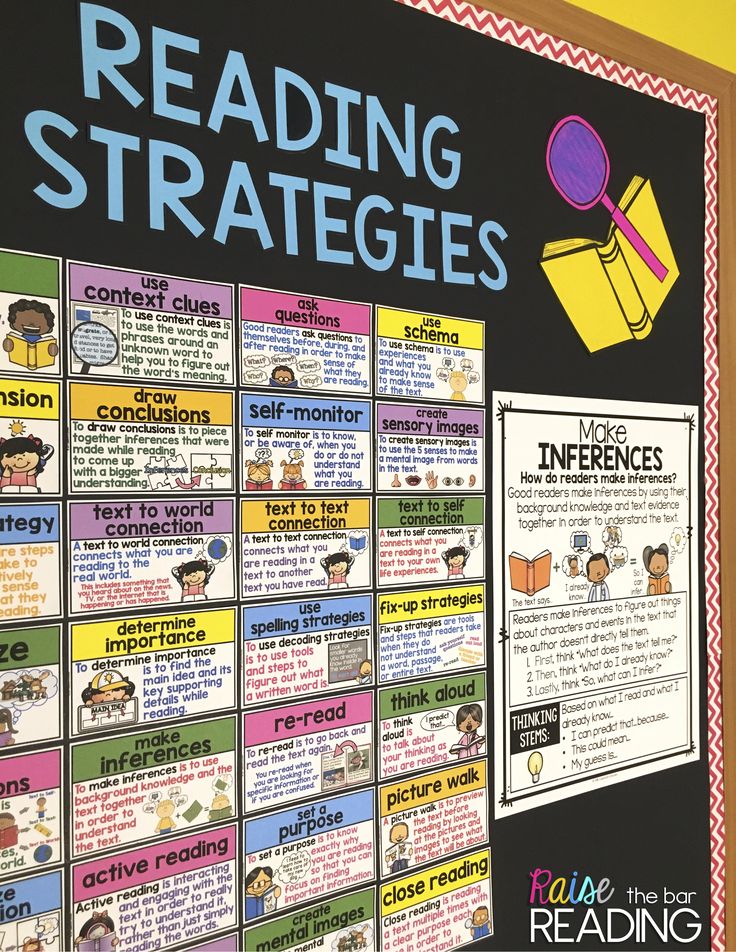 Whether you have to wear them all day long or just when you are involved in activities that put a strain on your eyes, make sure to never forget wearing them while reading. Not wearing them when you read can have much more unpleasant results than getting tired: you can get headaches, become dizzy, have itchy or dry eyes and other things.
Whether you have to wear them all day long or just when you are involved in activities that put a strain on your eyes, make sure to never forget wearing them while reading. Not wearing them when you read can have much more unpleasant results than getting tired: you can get headaches, become dizzy, have itchy or dry eyes and other things.
Answering the question “why do I get tired when I read” requires a great deal of insight into your reading habits, lifestyle and stress levels. Luckily, once the problem behind your reading fatigue is identified, fixing it can be rather easily done.
Especially if you take advantage of the benefits Basmo can bring to your reading, it can be surprisingly easy to overcome the sensation of tiredness that you feel when reading.
Sad employee vector created by pch.vector – www.freepik.com
Search
1908
It’s no big secret that I’m a fan of reading.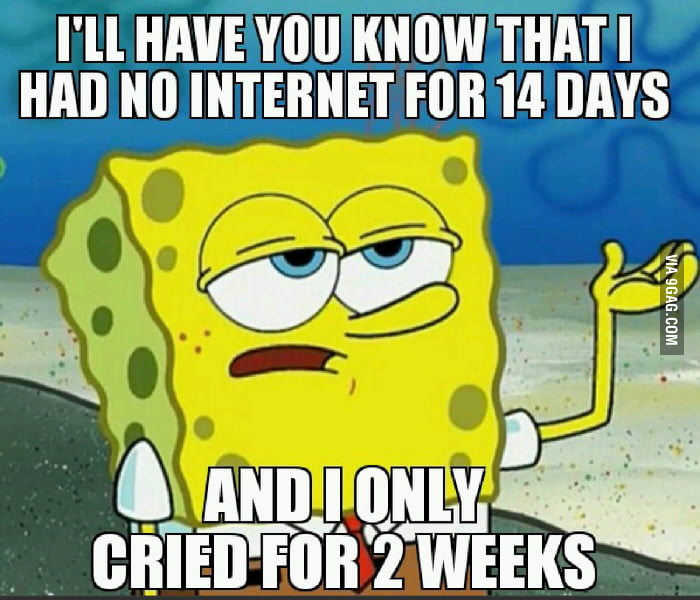 In fact, I think that reading is one of the most essential habits that a lawyer should develop early in their career – it will catapult your knowledge, your communication skills and your ability to interact with a wider audience.
In fact, I think that reading is one of the most essential habits that a lawyer should develop early in their career – it will catapult your knowledge, your communication skills and your ability to interact with a wider audience.
Ideally, you want to be a consumer of good content, all the time. But it’s easier said than done.
The down side is, of course, that lawyers spend a huge amount of time each day reading – emails, letters, briefs, cases and legislation.
So I can understand that the last thing you necessarily want to do at the end of a long day is to pick up a book and hold your eyes open with toothpicks while you attempt to consume information.
Of course, instead what often happens is that you stare at the page for a few minutes, and then realise that you have actually just zoned out.
The next thing we often try and do is just to read when we’re “up to it”.
There’s a few problems with this strategy.
First, it doesn’t develop a good habit. Habits are things that we do frequently, not just when we get a chance.
Second, you’re going to find that you will find excuses not to do any reading and your books are just going to stay on the shelf.
I like Ebooks – they save some of the effort that comes with carrying a book around with you (especially if, like me, you don’t carry a bag normally).
Ebooks also have the added advantage that they don’t take up any space – so if you don’t have a large house or an apartment, you can still collect as many ebooks as you want.
The downside is that they are still working your eyes.
Even on the Kindle, Kobo or E-Reader (which I prefer to read on, as it hurts my eyes less) you’re still working out your eyes, and it’s going to be hard work.
On a phone, tablet or computer screen your tired eyes are still going to be a problem, especially with high back-lighting on those devices.
At this point, some of you are saying “duh, Chris, I’ve been using audio books for years now”.
And I congratulate you.
But for me, they are relatively new and so I wanted to share the concept with you.
Audio Books have come a long way since the days of buying a pack of 10 CDs to load into your computer.
They are now:
Audio Books for lawyers also have the following added advantages:

So if you’re struggling to find time to read, can I encourage you to give an ebook a go? I recommend Audible, who are by far (as far as I know) the biggest repository of ebooks. It has the added bonus that you can sign up for free and get a free book to get going with. Click the link below and get started today (it’s an affiliate link so I get a small commission if you sign up – but it’s still free for you)
Of course, like everything, it’s not like Audio Books are a complete solution.
Firstly – it’s more noise. One of the things that books and ebooks have going for them is that they are silent, and having a few minutes where you are not surrounded by noise is always a good idea.
Second, some audio books are truncated, for reasons I don’t understand – which means you don’t get the book in full.
Third, images, graphics and tables are obviously not there – narrators do various things to try and get around this or provide a link to the resources, but it’s still a bit annoying sometimes in a figure-heavy book.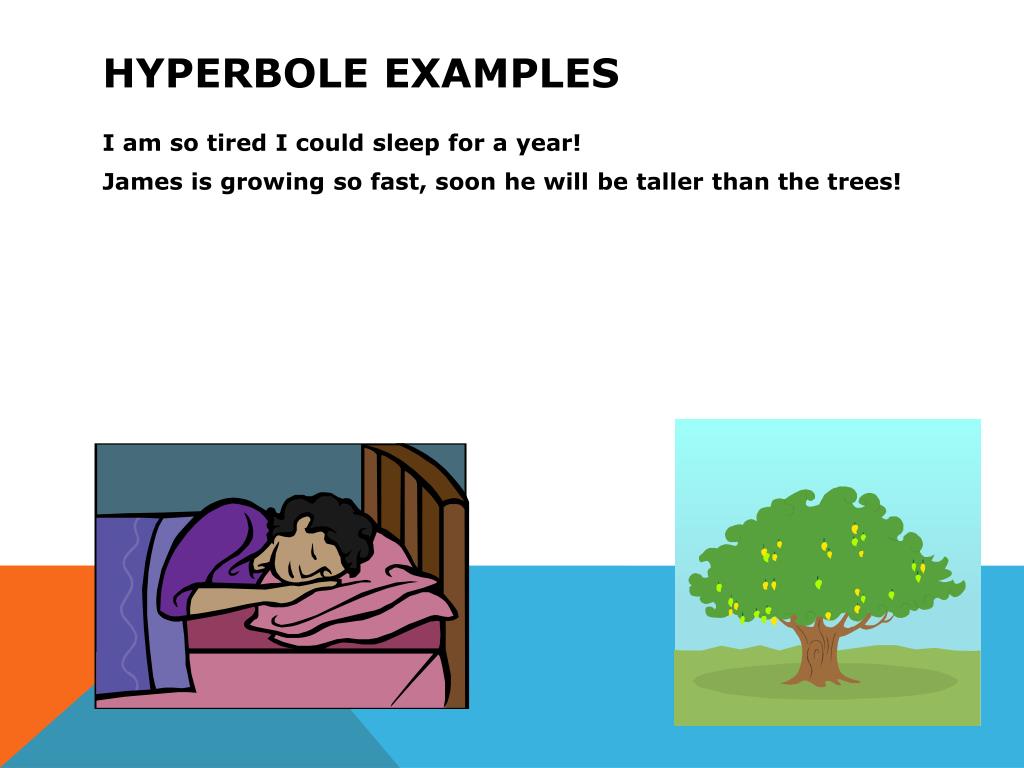
Finally, I have read a few papers suggesting that audio and ebook formats don’t offer some of the same intangible benefits as reading on paper does.
It’s free to get started – so give it a go and let me know what you think.
Happy Lawyering!
Is your list of books to read growing? Do you buy books that you don't even touch later? It's time to fix it.
belchonock/depositphotos.com
Buy a lot of books
Read constantly
Read faster
Do not disperse attention
Properly approach choice
Read several books simultaneously
Remember read
Warren Buffett, one of the most successful businessmen in world, describes his day like this: "I just sit in the office and read all day.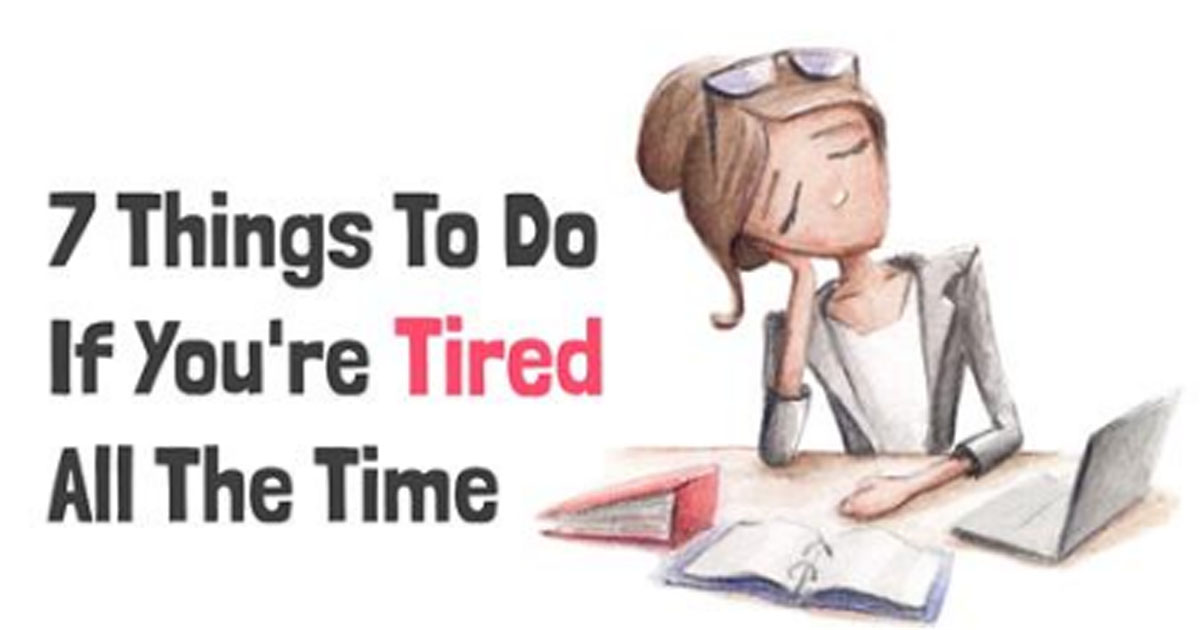 " He advises everyone read as much as possible, and that is indeed a worthy goal. How to make reading permanent habit?
" He advises everyone read as much as possible, and that is indeed a worthy goal. How to make reading permanent habit?
If you have read this article, you are probably also concerned about the fact that you read fewer books than you would like. Every year we read less and less. After school, university, work, family, new worries, obligations appear - and reading goes to second plan. nine0004
But in order to really achieve something in this world, you need to constantly gain new knowledge. And books are one of the best sources of information and other people's experiences. So let's set ourselves a goal of reading at least 100 books a year.
“
Fools learn from my own experience, I prefer to learn from the experience of others.
- Otto von Bismarck, the first Chancellor of the German Empire
Books cost both time and money. But if everyone can find the time, then the situation with money is more complicated. And here you have two options: earn or save.
But if everyone can find the time, then the situation with money is more complicated. And here you have two options: earn or save.
andriano_cz/depositphotos.com
But make sure the books are worth your investment. Perhaps, you personally do not need books and the Internet with television perfectly replace them. In such If so, just don't worry about reading less books. There is nothing terrible in this. Most people simply don't need it. They can safely give 200 dollars for a pair of shoes, but will regret spending the same amount on 20 new books. It's up to you what to choose. nine0003
But if you want to know more, you have to buy. The point of this advice is that the more books you have at home, the more choices you have, and this will help you read more.
Here's why. Reading most of the books you don't plan ahead. You don't sit down in January and say, "In the first week of June, I'll be reading this book". Usually you finish a book and look through your bookshelf to decide what to buy. what to take next. nine0048 If there is no suitable option at hand, you stop reading, until something worthwhile catches your eye. Therefore, it is important that you always have a small supply books.
Reading most of the books you don't plan ahead. You don't sit down in January and say, "In the first week of June, I'll be reading this book". Usually you finish a book and look through your bookshelf to decide what to buy. what to take next. nine0048 If there is no suitable option at hand, you stop reading, until something worthwhile catches your eye. Therefore, it is important that you always have a small supply books.
mihtiander/depositphotos.com
Daniella Winkler/unsplash.com
“
Have a stock of books — means to always have a reason to read.
Read at least 1 hour a day on weekdays and more during weekends and holidays. Find time for reading in your schedule. Don't make excuses for being too tired or too busy. nine0003
nine0003
Maria Victoria Portellesr/unsplash.com
Reading all the time means reading when you are:
And most importantly: read while others watch the news on TV or check for the 113th time of the day Facebook*. nine0004
kasto/depositphotos.com
Padurariu Alexandru/unsplash.com
Milada Vigerova/unsplash.com
If you can do this, you can easily read 100 books per year. Most people read about 50 pages per hour. If you read 10 hours per week, you will read 26,000 pages in a year. Let's assume that on average there are 250 pages. Simple arithmetic: so you can read 104 books in a year. Moreover, you can even take a two-week break, and then you get exactly 100.
Most people read about 50 pages per hour. If you read 10 hours per week, you will read 26,000 pages in a year. Let's assume that on average there are 250 pages. Simple arithmetic: so you can read 104 books in a year. Moreover, you can even take a two-week break, and then you get exactly 100.
This is a good result, worth the time spent. What can not be said about reading the news on social networks.
“
to read? I don't spend much time watching TV (the only exception is football season when I watch one game a week). I watch very few films. I don't spend Lots of commuting time to work. I don't spend a lot of time shopping. nine0004
- Shane Parrish, blogger Farnam Street
Looking at the statistics, the average person spends 35 hours a week watching TV, an average of one hour a day commuting to and from work and at least 1 hour per week for shopping. In total, this gives 43 hours a week, and at least some of that time could be spent reading.
In total, this gives 43 hours a week, and at least some of that time could be spent reading.
The obvious way to read more is to learn to read faster. And for most of us, quick wins are much more appealing than routine, slow reading. nine0003
Wavebreakmedia/depositphotos.com
So how fast can you read?
Staples, one of of the largest companies in the United States, engaged in the sale of office equipment, collected data on reading speeds of different people as part of an e-book advertising campaign. There are also Russian-language services for measuring reading speed. For example, you can check yourself here. nine0004
According to research Staples, the average adult reads about 300 words per minute. But this is, of course, conditional.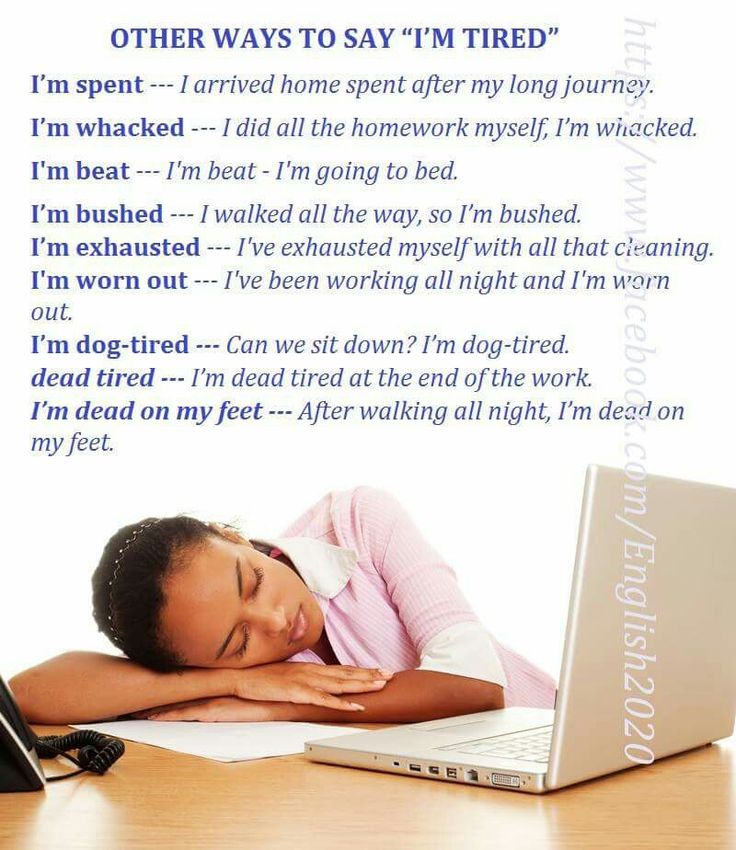 data. The rate depends on age and some other demographics.
data. The rate depends on age and some other demographics.
But fast reading is not always the best way to read more. Reading comprehension is much more important. Often high reading speed or reading obliquely leads to the fact that we retain worse in memory information and forget the details. However, if you can improve your speed a little reading while maintaining reading comprehension is fine. This will definitely be beneficial. But reading faster isn't the only way to read more. nine0003
However, if you can improve your speed a little reading while maintaining reading comprehension is fine. This will definitely be beneficial. But reading faster isn't the only way to read more. nine0003
You can read quickly, or you can read a lot. The combination of these two skills is a great way to teach yourself to read and not get bored, but at the same time, each of these skills is valuable in itself.
Tulane Public Relations/flickr.com
In fact, for many people it is important not only to read book from beginning to end, for them the story itself is more important. Reading speed doesn't have that much values if you are reading for pleasure. nine0004
From this point of view, the desire to read more means having more time to read and getting more information in general: from books, magazines, blog articles, and so on.
And let's start with the main question. As how many books do you read in a year? According to research, the average adult reads 17 books a year.
The key word here is average. Because the gap between those who reads, and those who do not read, too big. There are those who read much more than 17 books in a year, there are those who read much less - not a single one. According to a 2013 survey, 44% of Russians generally do not take a single book in hand for the whole year. nine0004
So let's look at 3 easy way to take in more information.
Method
by Tim Ferris
Method No. 1
Tim Ferris, author of How to Work 4 Hours a a week and at the same time not to hang around in the office “from call to call”, live anywhere and get rich” and others bestsellers, has its own technique that helps to increase the speed of reading by 3 times. This technique consists of two techniques. nine0003
This technique consists of two techniques. nine0003
Use a pencil to follow and set the pace (this is how some people run their finger along the lines during reading). Many often return to what they read, jumping with their eyes along the lines. Such indentation slows down reading. But if you point your way with a pencil, then stop getting lost in the text, which means you can read faster.
Start every new line not from the first, but at least from the third word and finish reading the line in three words to end. Try to figure out the rest on your own or capture it with a peripheral vision. At first, do not worry about whether you understand what you read or not, because that the main goal is to adjust your eyes to the new reading speed. Ferris claims, that one should strive to read a line in half a second. Repeat this process until you get used to this speed, at which point reading comprehension will also start improve. nine0003
Ferris claims, that one should strive to read a line in half a second. Repeat this process until you get used to this speed, at which point reading comprehension will also start improve. nine0003
The first technique can be used to master second. With practice, you will train your peripheral vision and begin to quickly perceive words that your vision is not directly aimed at.
“
Untrained readers spend half their time in the margins, moving from the first word to the last. It means, that they spend 20–25% of their reading time on parts of the page that do not contain no information. nine0004
— Tim Ferris, writer
Use technology
Method #2
Is there room for innovation in reading? The emergence of new method confirms that it is. The Spritz speed reading system helps you read faster and platforms like Makeright to digest the contents of a book faster.
The Spritz speed reading system helps you read faster and platforms like Makeright to digest the contents of a book faster.
Spritz nine0004
Shows one by one word from an article or book at a time inside a special field. Each word in red one letter is highlighted to facilitate concentration. You set the speed at which it is convenient for you to perceive the text, gradually increasing this indicator. You can install readers that use Spritz technology on your smartphone (there are options for both iOS and Android), download your books and read them faster. nine0003
Makeright
Service that publishes summaries of popular books on business, psychology, science and health. You literally in 15 minutes you will learn the main provisions from the work of interest to you, the most saving your time. If you are interested in the book, then buy the full version and enjoy.
If you are interested in the book, then buy the full version and enjoy.
Buy eBook
Method no. 3
People who prefer e-books read in an average of 24 books per year, while adherents of traditional paper publications - only 15.
This is quite understandable. E-books are easy to use, portable and convenient. FROM they make it easier to spend a little time reading when there is a free minute. Of course, maybe you won't read 9 right awaymore books a year, but at least interesting spend time in line or on public transport.
This seemingly counterintuitive advice comes from the author of the seemingly controversial book The Art of Talking About Books You Haven't Read, Pierre Bayard.
belchonock/depositphotos. com
com
Bayard is convinced that books should not be approached with simplified position "read" and "not read" - there are several more options:
books we read;
books we flipped through;
books we have heard about;
books whose content we forgot;
books that we never opened.
Have you ever come across a book that the rest, just amazing, but which did not hook you in any way? And it's not because this book really sucks. nine0004
Just not all books fit to each. The book may be a top seller, but you may be disappointed written. Or maybe this book fell into your hands at the wrong time.
Anyway, if you can't turn the page, put the book aside and take hold of one that truly brings you joy and pleasure.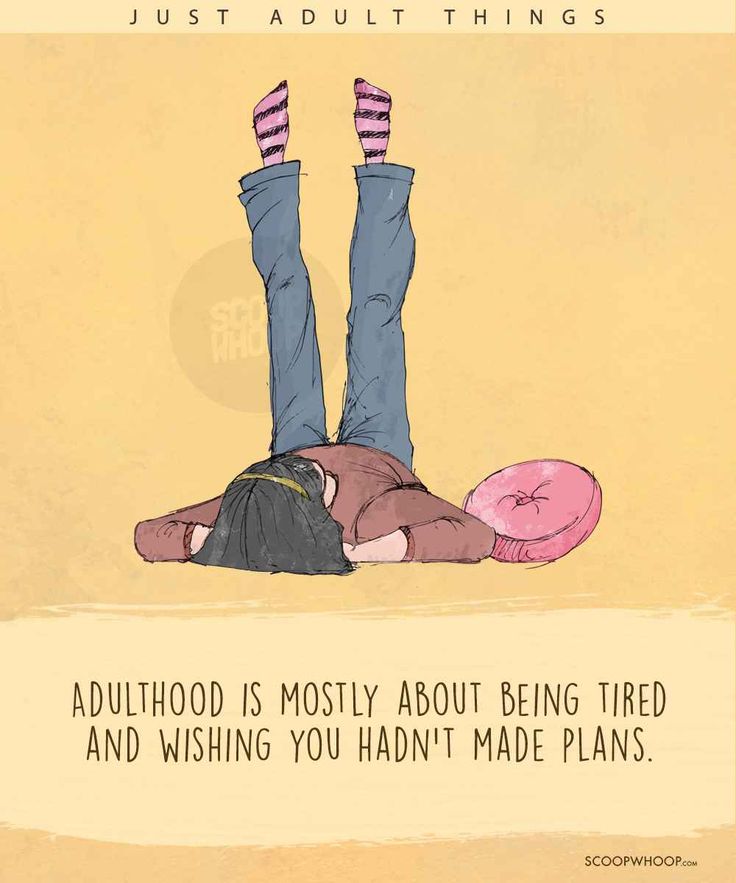 nine0004
nine0004
Possibly to read more books, you should look at the process of reading from the other side? For example, for to keep abreast of fashionable literary novelties, you do not have to read bestsellers from the cover to the crust - just run them obliquely. Conversely, for books that really matter to you, approach more thoughtfully and seriously. nine0004
Read literature that is relevant to what is happening in your life. people already 2 Books have been written for 000 years, and among them there were many who found themselves in the same situation as and you: struggling teenagers, aspiring artists, broke entrepreneurs, new parents, and so on.
Read books that related to your profession or hobby.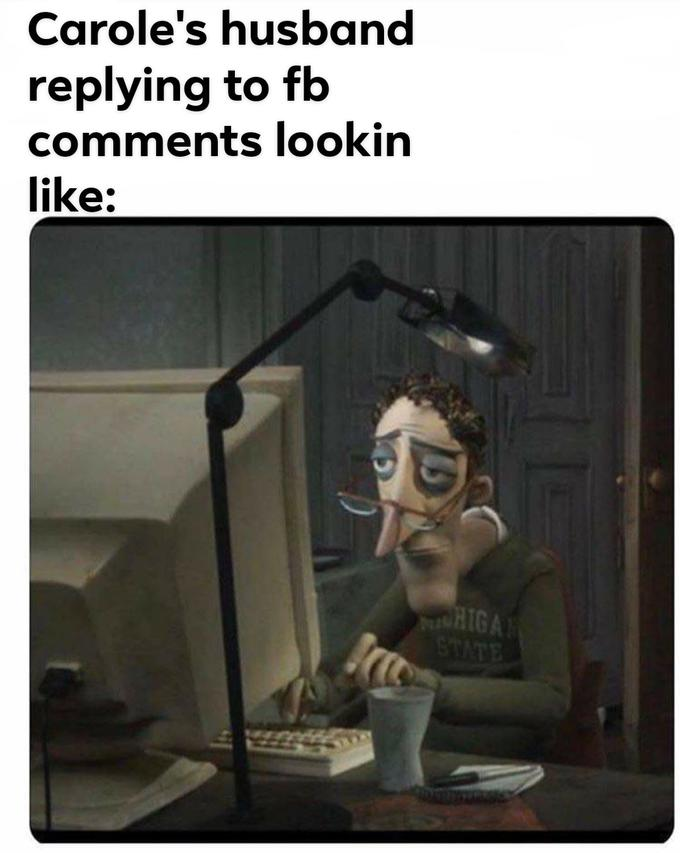 Read about the people who make you feel Delight. But don't pick up a book just because it's a bestseller or classics. nine0003
Read about the people who make you feel Delight. But don't pick up a book just because it's a bestseller or classics. nine0003
Josh Felise/unsplash.com
Visual Supply.co/unsplash.com
Annie Spratt/unsplash.com
“
time to read about things that don't interest you at all.
There are no strict rules for reading, so you can do whatever you want.
peshkov/depositphotos.com
Sometimes I read 5 books at a time. Yes, I I can read 50 pages of one book in the morning, and in the evening take up another. Although this is also a matter of taste. Someone else will probably prefer to read the book from beginning to end, before than take on another. nine0004
nine0004
If you are reading something difficult, save for the evening something easier. For example, before going to bed it is nice to read biographies. Yes, and artistic Literature is best in the evening.
But I can't read a book about investments lying in bed with a pen and notepad. If I do so, then I simply won’t be able to fall asleep until 3 in the morning, because the brain begins to work actively, assimilating new knowledge. nine0003
Knowledge is good because it can be used. But to keep knowledge in memory, you need a system. We offer you 3 memorization methods to choose from. They can be used individually or as part of a system.
belchonock/depositphotos.com
METHOD #1
Train your brain with impressions, associations and repetition
To better remember the books you read, you need to understand how our brain stores information. In this he is helped by impressions, associations and repetition. Let's take a look at an example. Let's say you're reading How win friends and influence people by Dale Carnegie, did you enjoy the book and you want to remember as much as possible.
In this he is helped by impressions, associations and repetition. Let's take a look at an example. Let's say you're reading How win friends and influence people by Dale Carnegie, did you enjoy the book and you want to remember as much as possible.
Impressions
Link the impressions to the text. Stop and try to imagine a picture in your head with yourself in the lead role. For example, when Carnegie describes his dislike of criticism, imagine that you get the Nobel Peace Prize and then throw away your prize. Another the way to turn on impressions is to read the passage aloud. Some of us are better perceive information aurally rather than visually. nine0004
Associations
Link the text to something you already know.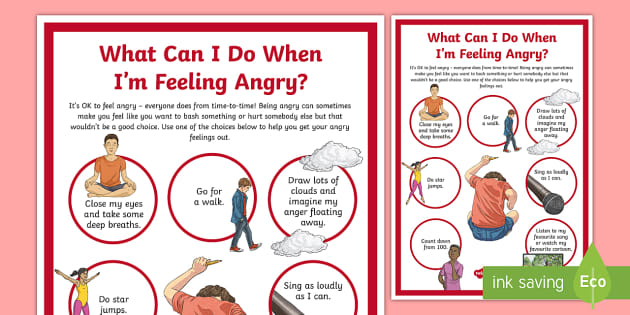 This method best used in conjunction with the technique of repetition. In the case of the Carnegie book, if you want to remember some principle, remember a specific example from your life when you could use it. Prior knowledge is the basis for building strong associations. nine0003
This method best used in conjunction with the technique of repetition. In the case of the Carnegie book, if you want to remember some principle, remember a specific example from your life when you could use it. Prior knowledge is the basis for building strong associations. nine0003
Repetition
The more you repeat, the more you remember. You you can immediately reread the passage you like or leave a bookmark to come back to it later.
By combining these elements, you will be able to memorize better and better. The more you practice, the more you will memorize. nine0003
WAY #2
Focus
on four reading levels
In his book How to Read Books, Mortimer Adler identifies 4 levels of reading (each new level of perception of the book is based on previous one):
Elementary
The one we were taught in school.
Inspection
Inspection reading can take two forms: fast, insufficiently careful reading or scrolling through the preface, table of contents, indexes and title pages. nine0004
Analytical
Involves a thorough, comprehensive study of the book.
Thematic
Read other books on the subject and compare your experiences.
Better understand the context and content of the book simple rules will help.
Classify the book according to topics. nine0004
State the main book's contents. Be brief.
Make a list of the main parts in sequence and establish connections between them. Describe very briefly the content of each.
Describe very briefly the content of each.
Identify the problem or problems the author is trying to solve.
When you take apart a book, you fix it in memory of the impressions received from it. Analysis of publications similar in subject matter will help not only to better understand the material, but also to remember it for a long time. nine0003
METHOD #3
Take notes
Take notes - This is one of the most popular and effective ways to remember the books you read.
When reading a book, do pencil notes in the margins, and highlight important passages with a marker. If you read e-books, add bookmarks and save text. But don't underline everything that seems even slightly interesting to you.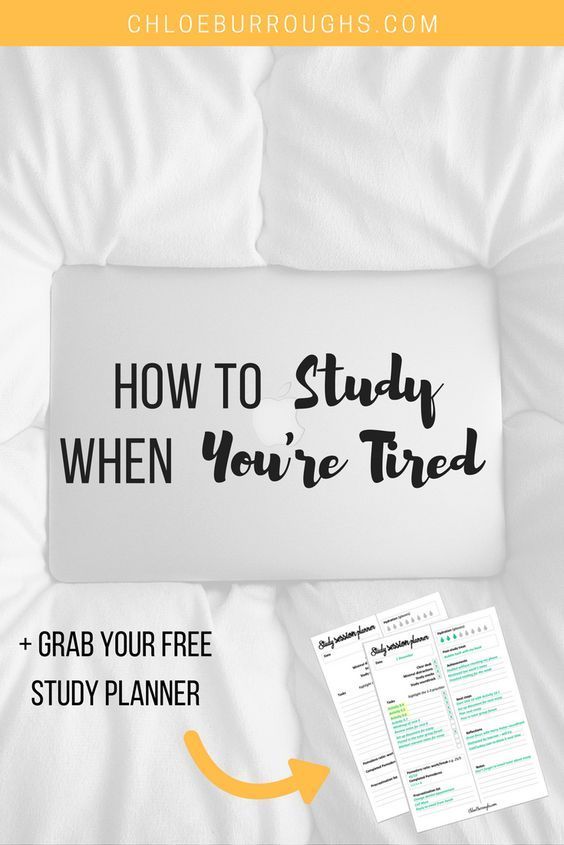 Select only what which impresses you. nine0004
Select only what which impresses you. nine0004
If you read what If you definitely want to remember, turn down the corner of the page. For e-readers books: take a picture of the screen and save it as a note.
When you finish the book, go back to the folded pages and run your eyes over the notes.
Write in your own words (using the application or a regular notepad), what was the book read about and what advice given by the author. nine0004
Write down the most important quotes.
“
When I I finish a book, I put it aside for a week or two, and then I come back to it. I look at my notes and the places I marked as important. I write them out. Or I put the book down again for a week or two.
I write them out. Or I put the book down again for a week or two.
- Shane Parrish, blogger Farnam Street
It's not that you just make a copy books. This is how you process information that may be useful to you in the future.
It doesn't matter which note-taking method you use. The main thing is that he was. Keep it as simple as possible so that when you finish reading the book, you want to take advantage of them.
Read as much as you can, but remember to The most important thing is to apply the acquired knowledge in practice. If you spend a lot of time for reading books, make sure that this activity gives you something in return. nine0003
subject:
Author and layout — Lera Merzlyakova.
Editor — Natalya Skornyakova.
Sources: How To Read 100 Books A Year
The Art of Reading, Remembering, and Retaining More Books
11 026 views
Very often I read biographies of successful people, and I noticed that almost every successful person pays special attention to reading books. For example, Microsoft founder Bill Gates reads about 50 books a year, and Mark Zuckerberg tries to read 2 books a month. nine0004
So I decided to start forming a healthy habit of reading a book every day. Before that, of course, I read books, but at times. Complaining mostly about the lack of time.
I decided to start small, because I know from experience that in a burst of motivation and inspiration, you set a big bar for yourself, and when the motivation goes away, it becomes very difficult to continue and often give up.
I started reading for 30 minutes a day. The first few days when the motivation was at its best, I took up reading the book with pleasure. There were days when I was very busy at work and thoughts came into my head that I had earned a lot and was very tired. But he tried to take strength into a fist and before going to bed he took up reading a book. And as soon as he began to read all thoughts of fatigue evaporated. nine0004
And the more I continued, the more enjoyable reading became for me. And already by the 20th day of habit formation, I began to notice that I sit up reading for 1 - 1.5 hours. Then I did everything automatically, as if reading had already become a part of my life.
As I described above, I am very interested in the topic of personal growth and therefore I read books on self-development. And after each 30-minute session of reading this kind of literature, I received a lot of useful information as well as a large portion of inspiration, which helped me cope with stressful and routine tasks at work.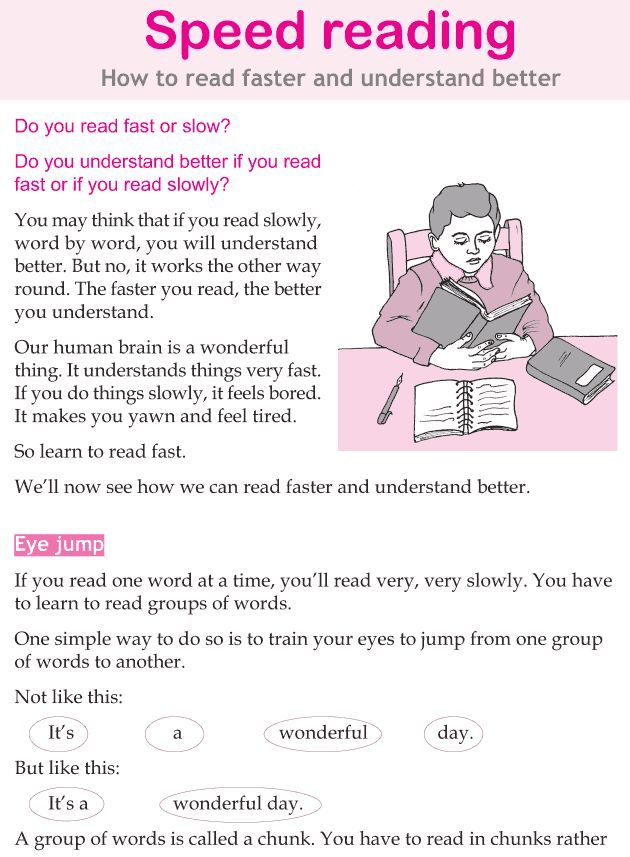 nine0004
nine0004
So what have I learned in 30 days of 30 minutes of reading?
Advice on how to start forming the habit of reading daily:
